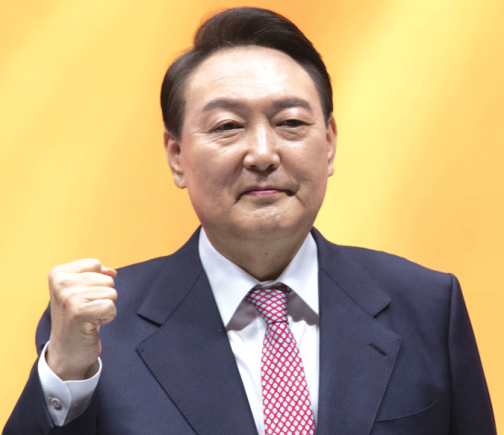
South Korea, Cuba establish diplomatic ties
South Korea established full diplomatic relations with Cuba on Wednesday, February 15, 2024, when the ambassadors of the two countries to the United Nations (UN) in New York exchanged diplomatic notes formally establishing diplomatic ties.
Advertisement
This makes Cuba the 193rd country with which South Korea has established diplomatic relations and the decision reduced to one the number of UN member states that South Korea has yet to establish diplomatic relations with, namely Syria.
The ceremony marked a culmination of Seoul’s steadfast efforts to build a formal relationship with Cuba to expand its diplomatic foothold in Central and South America on the back of growing cultural and people-to-people exchanges. But analysts say South Korea’s establishment of diplomatic ties with Cuba will likely deal a “blow” to North Korea, given the close brotherly ties Pyongyang and Havana have maintained for decades.
Unexpected move
The move was unexpected since there had been no recent public reports that the two countries were engaged in discussions regarding the establishment of diplomatic ties. Some media reports suggested that the Yoon Suk Yeol administration deliberately carried out the establishment of formal ties with Cuba in a low-key manner.
According to observers, the forging of the ties came as inter-Korean tensions had deepened with the North Korea leader, Kim Jong-Un, branding the South as a “primary” foe and doubling down on his regime's formidable weapons tests, including this week's round of cruise missile tests but the pursuit of the bilateral ties appeared to have been driven by a confluence of Havana’s quest for deeper economic and cultural exchanges with Asia’s fourth-largest economy, and Seoul’s drive to expand its global profile.
In a separate press release, Seoul's Foreign Ministry expressed expectations that formal relations with Cuba mark a “crucial turning point” in its efforts to strengthen diplomacy with central and South America and further expand its diplomatic horizons.
“Going forward, our government will actively cooperate with the Cuban government on follow-up steps, including the mutual establishment of diplomatic missions,” it said.
Diplomatic ties between Seoul and Havana would be a ho-hum event if it were not for the fact that North Korea and Cuba have had a particularly close and cordial relationship for the last six decades. Cuba has had particularly close relations with North Korea since the two established diplomatic ties in 1960 soon after Fidel Castro came to power. That relationship was driven by their mutual hostility towards the United States (US).
Diplomatic ties
Before 1960, Cuba had diplomatic relations with South Korea, but the Castro government severed those ties when relations were established with the North.
North Korea has diplomatic relations with 160 countries, but only 24 have established an embassy in Pyongyang but of the 193 countries which maintain diplomatic links with South Korea, 115 have embassies in Seoul and another five have “Representative Offices” there. In addition, some of those countries also maintain consulates (not including honorary consulates) in cities other than Seoul.
South Korean relations with Cuba were made considerably more complex because South Korea has such close political, military, economic and cultural ties with the US and the closeness of Seoul and Washington complicated Seoul’s ability to develop its relations with Cuba because of the difficult history of Cuba and the US after Fidel Castro and his July 26, Movement took control of Cuba in 1959.
US-Cuba relations
The Cuban Missile Crisis the following year in October 1962 made the US relations with Cuba particularly difficult for the following four decades but as he aged, Fidel Castro gradually withdrew from involvement in his government’s activities; and in 2006, he handed over the responsibilities of the Cuban presidency to his brother Raoul. As Fidel’s involvement declined, gradual efforts were made to improve relations with the US.
During the Barack Obama presidency, significant steps were taken to change the relationship. In December 2014, President Obama and Raoul Castro agreed on a prisoner exchange and the reestablishment of diplomatic relations between Cuba and the US. The opening of formal diplomatic contacts between Cuba and South Korea could create problems for the Cuba-North Korea relationship. News reports from Seoul suggest that some officials in the President’s office are expecting that result.
Foreign Ministry
The Foreign Ministry highlighted the practical benefits of diplomatic representation: “Our establishment of diplomatic relations with Cuba, the only country without such ties in the Caribbean, Central American and South America, marks an important turning point in strengthening our diplomacy in the region. We expect it will help us further expand our diplomatic horizons as a global pivotal state.”
The change in diplomatic status will “help expand actual cooperation between our two countries and enable us to provide systematic consular assistance to Koreans who are visiting Cuba”.
Thus far, there has been no public reaction from North Korea about the decision of Cuba and South Korea to establish diplomatic relations. There was, however, a clear indication of displeasure. North Korean state media reported on a banquet given by the North Korean ruling party on the day before diplomatic relations were announced.
No mention was made in North Korean media of the presence at the event of Cuba’s Ambassador to North Korea, but a photo released by the Russian Embassy in Pyongyang clearly showed the Cuban Ambassador at the event. North Korean media have generally mentioned the presence of the Cuban envoy when reporting on diplomatic events when he has been in attendance.
The failure of North Korean state media to mention the Cuban ambassador’s presence is a clear sign of displeasure in Pyongyang.




